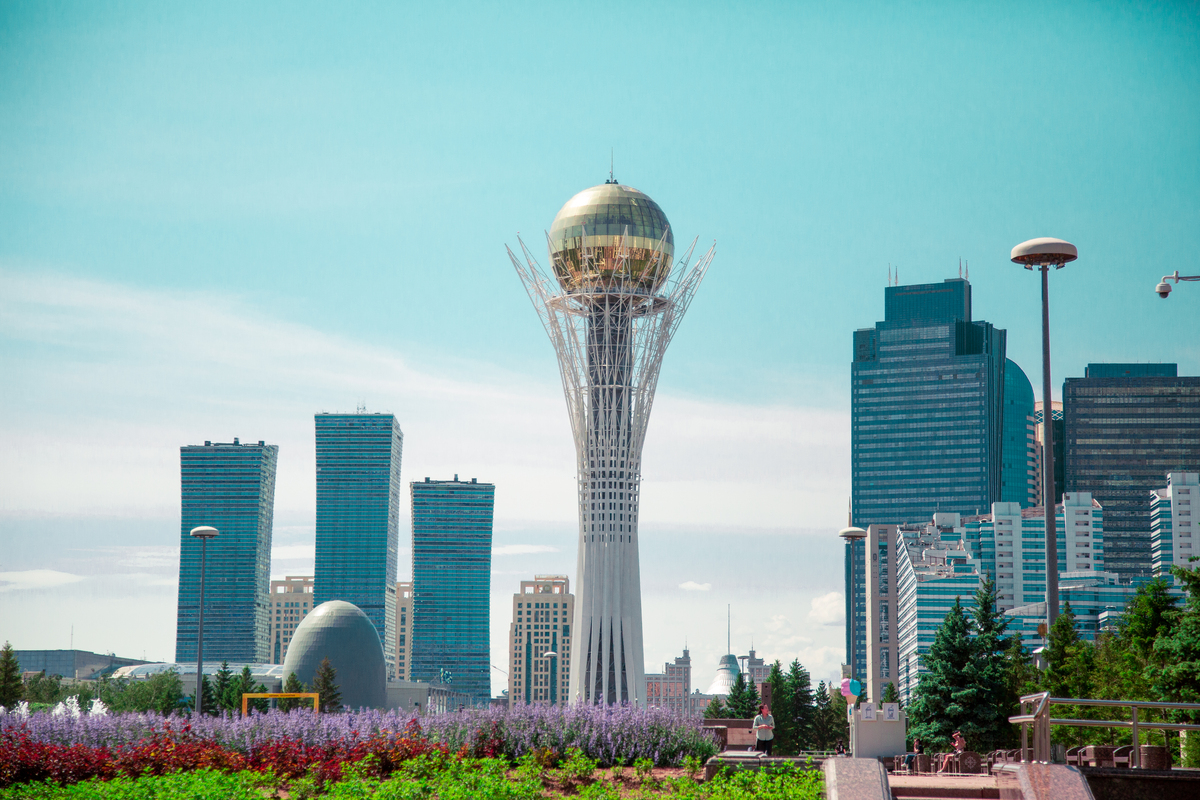ASTANA – The Astana Times has selected articles from global media outlets covering Kazakhstan. This week’s foreign media digest covers Kazakhstan’s multi-vector foreign policy, Kazakhstan’s Middle Power status, and more.

Photo credit: The Astana Times
From backwater to beacon: Kazakhstan’s identity as a Middle Power
Modern Diplomacy published an article on July 15 about Kazakhstan’s position on the global arena. The article is written by Miras Zhiyenbayev, Head of the Foreign Policy Analysis and International Studies Program at MIND, the Maqsut Narikbayev Institute for Networking and Development, a university-based think tank at Maqsut Narikbayev University.
“Kazakhstan has always been pragmatic in its policies, striving to be a partner to everyone and an opponent to none. This approach allowed it to act as a facilitator of regional cooperation, whether through the Shanghai Cooperation Organization, the Eurasian Economic Union (EAEU), or the Organization of Turkic States (OTS). Additionally, Kazakhstan has played a key role as a mediator in regional conflicts, such as the Astana Process on the Syrian War and its participation in the Iranian Nuclear Deal,” the article reads.
Kazakhstan is continuously looking to hedge its interests to mitigate the potential impacts of great power tensions. This includes a persistent search for investments in the infrastructure of Caspian ports, which are major bottlenecks for the efficiency of the Middle Corridor. Additionally, Kazakhstan has expressed a desire to host peace talks between Armenia and Azerbaijan, potentially opening the Zangazur corridor to address another bottleneck in the Caucasus, Zhiyenbayev wrote.
Kazakhstan seeks ‘great gain,’ not the ‘great game’
The Asia Times released an interview on July 16 with Kazakhstan’s Deputy Foreign Minister, Roman Vassilenko, about Kazakhstan’s multi-vector foreign policy.
“Vassilenko said that Kazakhstan has been able to secure and promote its national interests because the Ministry of Foreign Affairs’ diplomatic outreach has been smart and flexible rather than dumb, pushy, and ideological. He said this without an observable trace of hubris,” the article reads.
Vassilenko explained: “Our diplomatic skills are rooted in the traditional world view of the Kazakh people who, for millennia, protected their interests not through war but through what we today call diplomacy. Kazakhstan’s President Kassym-Jomart Tokayev carries on in the same tradition. We are sandwiched between great powers and civilizations, and, for this reason, we have always strived to build constructive, mutually respectful, mutually beneficial relations with neighboring countries.”
Navigating Kazakhstan’s multi-vector foreign policy in an evolving geopolitical landscape
Though landlocked, Kazakhstan’s strategic location enables it to be a transit conduit, and this is a critical aspect of its geopolitical significance. This central position in the heart of Eurasia, coupled with its abundant natural resources, further enhances Kazakhstan’s prominence, wrote the Indian Council of World Affairs on July 9.
“The country’s rich resources, including oil, gas, and minerals, not only attract the attention of major international powers, such as the United States, Russia, China, the European Union, Türkiye, India, and Iran, but also underline its potential as a critical player in the global economy. Kazakhstan’s geopolitical and geo-economic landscape underscores the importance of its foreign policy trajectories,” the article reads.
Around the world walker set to swim Caspian Sea
A Hull man hoping to become the first person to complete an unbroken walk around the world is planning a 186-mile (300 kilometers) swim across the Caspian Sea, reported BBC News on July 16.
“Karl Bushby set off in 1998 and is more than two-thirds into his 36,000-mile (58,000 kilometers) adventure. However, he said tensions between the West and Russia and Iran have meant the only option open to him if he wants to continue is to swim from Kazakhstan to Azerbaijan. Under the rules he set himself before beginning his adventure, which he has called the Goliath Expedition, Mr Bushby must not use any form of transport. According to his research, no-one has ever swam across the Caspian Sea – the biggest enclosed, inland body of water in the world,” the article reads.
He said he intends to set off on the swim in mid-August.
The 16 most beautiful restaurants in the world, according to Prix Versailles
Forbes, a U.S. business magazine, named Kazakhstan’s Auyl restaurant among the world’s 16 most beautiful restaurants on July 12.
“With exotic locations worldwide, from Paris to Kazakhstan, the Annual Prix Versailles has unveiled its World’s Most Beautiful Restaurants List for 2024, featuring 16 newly opened or reopened restaurants that have left an extraordinary imprint. They will all compete for three 2024 World Titles—Prix Versailles, Interior and Exterior—whose laureates will be announced at UNESCO Headquarters by late November,” the article reads.
Auyl is located inside a monument inherited from Soviet modernism, a former yurt residence where a dignitary of the socialist republic would receive foreign guests. An experimental restaurant project in the Medeu mountain district, the restaurant is the brainchild of architects, artists, artisans, designers, and creative producers. The structure was originally built in Aktau and only eventually relocated to the mountains, where Chef Ruslan Zakirov and designers NAAW and Dunie Design have created breathtaking spaces around an open kitchen, according to Forbes.
Wabtec plans to produce green locomotives in Kazakhstan
Westinghouse Air Brake Technologies Corporation (WABTEC), an American company, plans to produce green locomotives in Kazakhstan, reported Trend on July 16.
This topic was discussed during a meeting between First Deputy Prime Minister of Kazakhstan Roman Sklyar and Wabtec CEO Rafael Santana.
During the meeting, Sklyar thanked Santana for the creation of the Wabtec Engineering Center on the basis of Lokomotiv Kurastyru Zauyty JSC in Astana.
In turn, Santana assured that the center will work on the production of locomotives using alternative energy sources (LNG, hydrogen, and batteries), as well as improving the repair and maintenance of locomotives produced in Kazakhstan and used in other countries (Azerbaijan, Tajikistan, the Kyrgyz Republic, and Moldova).
